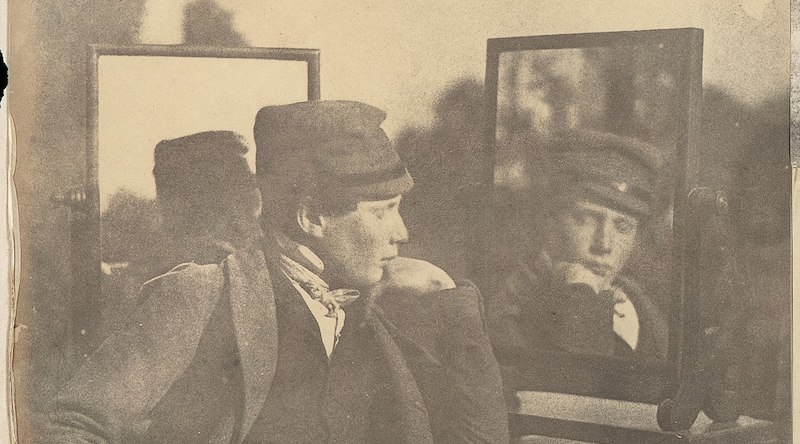Quite possibly the hardest thing any human can do is to be his or herself. Our whole life, all of us have, in different ways, built up personas, pretenses, or “shticks” through which we present ourselves to the world. These facades run deep. And they take a lifetime to cure.
This pursuit of authenticity, of course, is something many rightly desire. For this reason, it has garnered much attention even in the secular world. In fact, possibly one of the greatest portraits of the inauthentic man is provided by the atheistic philosopher Jean-Paul Sartre in his book Being and Nothingness. Sartre gives the example of a café waiter who denies his own true self by taking on the expected ethos of his profession:
His movement is quick and forward, a little too precise, a little too rapid. He comes toward the patrons with a step a little too quick, he bends forward a little too eagerly; his voice, his eyes express an interest a little too solicitous for the order of the customer . . . All his behavior seems to be a knack . . . His gestures and even his voice seem to be mechanisms . . . He is playing. He is amusing himself. (Being and Nothingness, Ch.2)
I suspect that most of us, on reflection, recognize this phenomenon both in other people and in ourselves. It’s a game, as Satre points out, all too irresistible to us.
The interesting thing about this “game” however, is how hard it is to quit. We tie ourselves up into complicated knots when we try. We often assume new personas when trying to shirk the first one. For example, think of a teenager who, in the name of authenticity, stops being the “teacher’s pet” expected by his parents, only in order to be the “party animal” expected by his peers. Or the “political centrist” who in the name of truth-telling becomes a belligerent “culture warrior.”
I would like to propose that the main reason authenticity is such a struggle for us is ultimately a difficulty of love. Just as sure as we need oxygen, we need to know that we are loved and worthy of love. For good reason, then, we are hesitant to bring our true self out into the harsh winds of the world: What if I am rejected? Deemed by others as unworthy, unpleasant, unlovable? And if this happens, am I really, in fact, worth anything?
We are only able to bring our true selves out into the light when we are assured that we are both in fact loveable and in fact loved. That is why the tradition of the Church has always insisted that the final remedy to the quest for authenticity can only be found in the love of God. Only by building the house of our self-identity on the bedrock of the love of God, rather than the sands of worldly affirmation, can we weather the storms of life while remaining ourselves.
The reality is that no matter how perfect that parent, spouse, or friend is, no one person can truly love everything we are. There are great, cavernous expanses in every soul which no one person can exhaust. This is why there always seems to be a kind of gap of loneliness, even between the closest of friends. The only person who can plumb these depths and bridge this divide is the creator of the soul: God, who knows he created it beautifully and lovingly.
Of course, however, the quest for authenticity is hardly the end goal of life, but rather just the beginning. Because it is in the stance of guilelessness, candidness, and transparency that real encounters with God take place. These encounters, in turn, strengthen our self-assurance and open us up for deeper encounters, which begins the cycle anew.
Lord, grant us a deep knowledge and assurance of your love, that, when meeting you, you may recognize the work of your own loving hands, not our own poor facsimile.
✠
Photo from Wikimedia Commons







